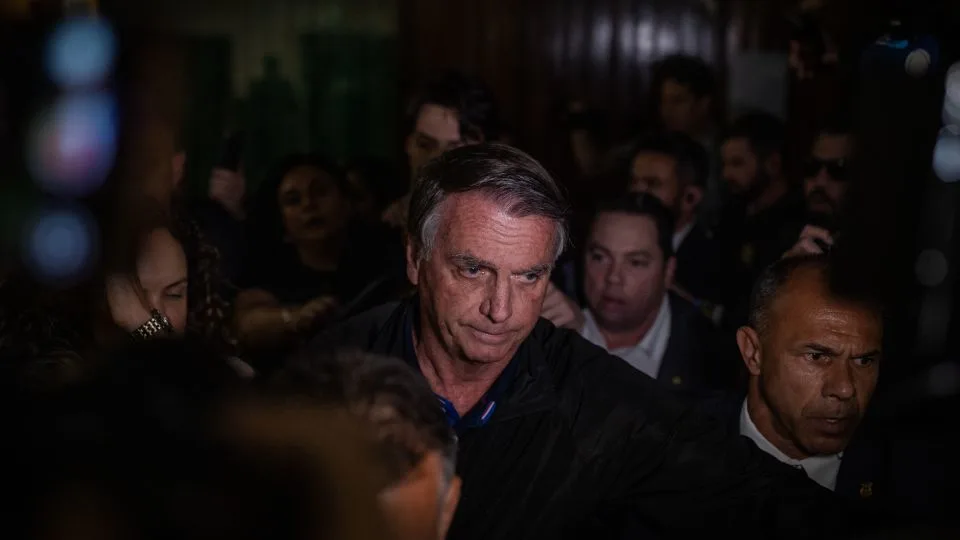Brazil has entered uncharted political and judicial territory as its Supreme Court began the trial of former President Jair Bolsonaro on Tuesday. He stands accused of masterminding a scheme to overturn the 2022 election results and retain power, a case that could imprison him for decades and fundamentally alter the country’s democratic landscape.
Allegations of Coup Plotting and Assassination Plans
Federal prosecutors contend that Bolsonaro and his inner circle coordinated a plan amounting to an attempted coup d’état. The alleged conspiracy went far beyond electoral disputes, with discussions reportedly including the assassination of President Luiz Inácio Lula da Silva, Vice President Geraldo Alckmin, and Supreme Court Justice Alexandre de Moraes — the very magistrate now presiding over the case.

Bolsonaro, currently under house arrest for ignoring court restrictions, has denied all accusations. He faces trial alongside seven former ministers and advisers described by prosecutors as the operational core of a criminal network bent on dismantling democratic institutions.
Structure of the Trial
The proceedings, running from September 2 to 12, are overseen by a five-member panel of justices. De Moraes will summarize the case and cast the first vote, followed by colleagues largely appointed by left-wing presidents Lula and Dilma Rousseff. If convicted, Bolsonaro could face more than 40 years in prison, though appeals would likely delay sentencing.
The trial coincides with Brazil’s Independence Day on September 7 — a symbolic date long exploited by Bolsonaro’s movement to project political strength. Authorities are bracing for possible unrest, wary that national celebrations may morph into protests or attempts at mobilization by his supporters.
A Constellation of Charges
The former president and his allies face an array of charges: leading a criminal organization, attempting to overthrow democratic order, conspiring to seize power by force, inciting violence against institutions, and damaging public property during the January 8, 2023, insurrection in Brasília.
The case rests heavily on evidence gathered by federal police, who argue Bolsonaro was fully aware of a plan to nullify Lula’s victory, pressure the armed forces into backing him, and set up a shadow “crisis office” to govern in defiance of constitutional authority. Investigators also uncovered drafts of a request for political asylum in Argentina and communications with Donald Trump’s media associates in the U.S., which they say point to his persistent efforts to evade justice.
Foreign Interference and U.S. Pressure
The trial has sparked a diplomatic storm. Former U.S. President Donald Trump — who remains an influential political figure — branded the case a “witch hunt” in a letter to Lula, threatening severe economic retaliation unless Bolsonaro’s prosecution was halted. The Trump administration later raised tariffs on Brazilian imports, imposed sanctions, and even revoked visas of Brazilian justices, explicitly targeting Moraes.
This unusual intervention has further politicized the trial. Lula denounced Washington’s actions as blatant interference, insisting Brazil’s judiciary operates independently and no foreign leader can dictate its rulings. The clash underscores Bolsonaro’s longstanding alignment with Trump’s movement and his family’s cultivated influence within MAGA circles.
Justice Alexandre de Moraes has emerged as both the chief investigator and a lightning rod of criticism. Known for his aggressive crackdown on online disinformation and his confrontations with tech platforms such as Elon Musk’s X (formerly Twitter), he is simultaneously celebrated as a defender of democracy and vilified as an overreaching censor. His dual role as both alleged target of the coup plot and leading judge has also fueled debate over judicial impartiality.
The trial represents more than just the fate of one political figure. For supporters of the prosecution, it is a vital test of accountability, proving that no leader stands above democratic law. For critics, the Supreme Court’s expanded reach raises fears of judicial overreach that could itself destabilize the system.
Regardless of the outcome, Bolsonaro’s trial threatens to further polarize a nation already fractured between his right-wing base and Lula’s leftist coalition. It is a moment that will determine not only whether a former president goes to prison, but also whether Brazil’s institutions can withstand the greatest political crisis since the end of military rule.


